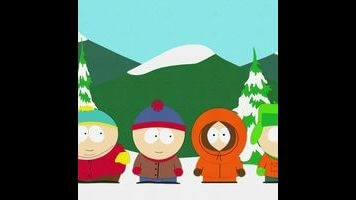South Park: “Sarcastaball”

Straddling the line between satire, silliness, and earnestness is the standard operating procedure for South Park. But given the show’s insane turnaround time (explored in depth in the documentary Six Days To Air), achieving that balance isn’t always in the cards. Either a particular episode heavily favors one factor over the others, or attempts to balance things out go astray due to the sheer pressure Trey Parker, Matt Stone, and the rest of the production team place upon themselves in order to knock these episodes out in under a week. “Sarcastaball” isn’t a classic episode of the show by any stretch. But by placing the most sincere child in the show’s universe at the center of a sarcastic maelstrom, it still produced the sweetest possible episode that also happens to feature the mass production of an energy drink composed entirely of a young child’s semen.
Each half-season of South Park seems to feature at least one Randy-centric episode, and they all tend to be among the strongest offerings in any programming bloc. “Broadway Bro Down” was my favorite episode of the 15th season, and Comedy Central just happened to run it right before tonight’s premiere. As such, I was primed for some more Randy Marsh insanity, and on that front, the episode delivered. Randy learns that Stan’s school has banned kickoffs from the student football league, over fears of concussions that seem to affect more and more professional athletes. (One thinks he’s driving a car on the field. Another believes himself to be baking either cookies or bread during the pre-game ceremonies.) At the next PTA meeting, Randy launches into an angry, sarcastic rant that has the effect of actually kickstarting the safer sport of “sarcastaball.” How does this sport differ from football? Well, all players wear bras and tin foil hats, use balloons instead of footballs, and must hug other players when not bestowing praise upon them. And that’s just the start of things.
Marsh’s cynicism only grows as sarcastaball grows in popularity, with sarcasm itself turning into a type of disease that infects all that come into contact with the sport. The gospel of sarcastaball spreads beyond South Park into the state of Colorado and soon the entire country. Soon, Randy isn’t coaching Stan’s school team but the Denver Broncos in the newly christened “National Sarcastaball League.” (In case you’re wondering, the refs aren’t any better in that sport than they are in football.) Now, actually having sarcasm be a legitimate, biological condition isn’t past South Park. The rules of the show allow for such a reality. But smartly, the show instead places blame on Randy himself, who eventually admits that the sport simply provided an outlet for his inner, raging a-hole. The episode uses recent football controversies to make a simple point: Sarcasm is the default language in this day and age. Is that a particularly fresh insight? Of course not. Did it get a little grating near the end? Sure. But in Butters, the show had enough of a counterpoint to keep things from becoming too monotonous.
Butters. Oh, Butters. If “Sarcastaball” is partly about the ways in which people can go overboard in the name of the ever-elusive notion of “keeping people safe,” it also demonstrates through Stephen Stotch’s actions just how harmful overprotection can be as well. In the beginning, it’s thrilling to see Butters take charge in an environment in which respecting other people is the mark of a true leader. Seeing Cartman drop his normal attitude and replace it with one akin to reverence for his new role model is something to behold. Butters turns into the freakin’ Vince Lombardi of positive speechifying. Some of his fellow players have a hard time adjusting to this new world order. (“I can’t remember if I’m supposed to hug the running back or compliment him. It’s so confusing!”) But Butters is there to inspire them to be contributing members of society. He implores his teammates to channel and churn the “creamy good” inside them to transform into their best selves. “You just gotta use that to be the nicest, more compassionate player you can be!” he extols his team.
